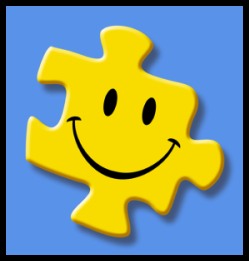 Lately, I’ve been obsessing about semantics, how we choose our words, and what effect a personality type has on both. Take self-promotion just as an example. To tell an introvert to get out there and “Sell yourself!” might make someone feel uncomfortable. Turn that around for a second and say something like, “Help someone know more about you.” Same thing. Different words.
Lately, I’ve been obsessing about semantics, how we choose our words, and what effect a personality type has on both. Take self-promotion just as an example. To tell an introvert to get out there and “Sell yourself!” might make someone feel uncomfortable. Turn that around for a second and say something like, “Help someone know more about you.” Same thing. Different words.
No, this idea isn’t new. It’s a different take on the old adage, “Doesn’t matter what you say, just how you say it.” There’s two sides to the application of this powerful idea. There’s the writing side, where we have to make decisions about the words we use. There’s also the semantic side, where we interpret meanings of words that may illicit a response or a reaction.
For one example, consider the dreaded “critique.” I don’t know one writer who doesn’t love to write. I do know, however, a lot of writers who have no idea how to critique or receive criticism — especially when it’s a rough draft. If you’ve experienced this, you know what I’m talking about. They nitpick the placement of a comma. They argue with you about how you feel when you read your story. They write one draft and think it’s finished. Here, too, semantics and word choice come into play. There’s a huge difference between saying, “I did not care for this story, but someone else might.” versus “This story sucked.” Sure, different people critique poorly for different reasons; they’re insecure about their own work, they’re envious, they’re inexperienced, etc. It may be hard, but I find you have to balance “what was said” with “what they meant.” In most cases, I find the reason why someone gives you a bad critique is because they don’t understand the difference between a critique and a review. Of course, you have to mull over comments in a way that doesn’t drive you insane. After all, you have to have confidence in your work or you wouldn’t write.
A lot of writers are introverts by nature; I’m guessing this affects how we react emotionally to words and what we write. I feel that it’s tough to be an introvert simply because there are so many words associated with this personality type that have negative connotations. We’re loners. Outcasts. Freaks. If you’re a writer trying to pursue a professional path, though, we’re often forced to be both. (I am an introvert by nature and an extrovert when I have to be.) Sure, my writing changes depending upon what mood I’m in. What’s fascinating to me, though, is experiencing this simple idea from the reader’s viewpoint.
By being able to understand what their personality type might be, our writing functions as an emotional catalyst for our readers. Yes, marketers do this all the time, but this idea doesn’t just apply to ad copy or non-fiction. Often, the most popular stories aren’t the ones that are written the greatest; they’re the ones that can reach a reader on an emotional level. Maybe, for the rest of us to do the same thing, we just have to find the right words to do it. Maybe, for us to do that, we have to ask ourselves what touches us.
